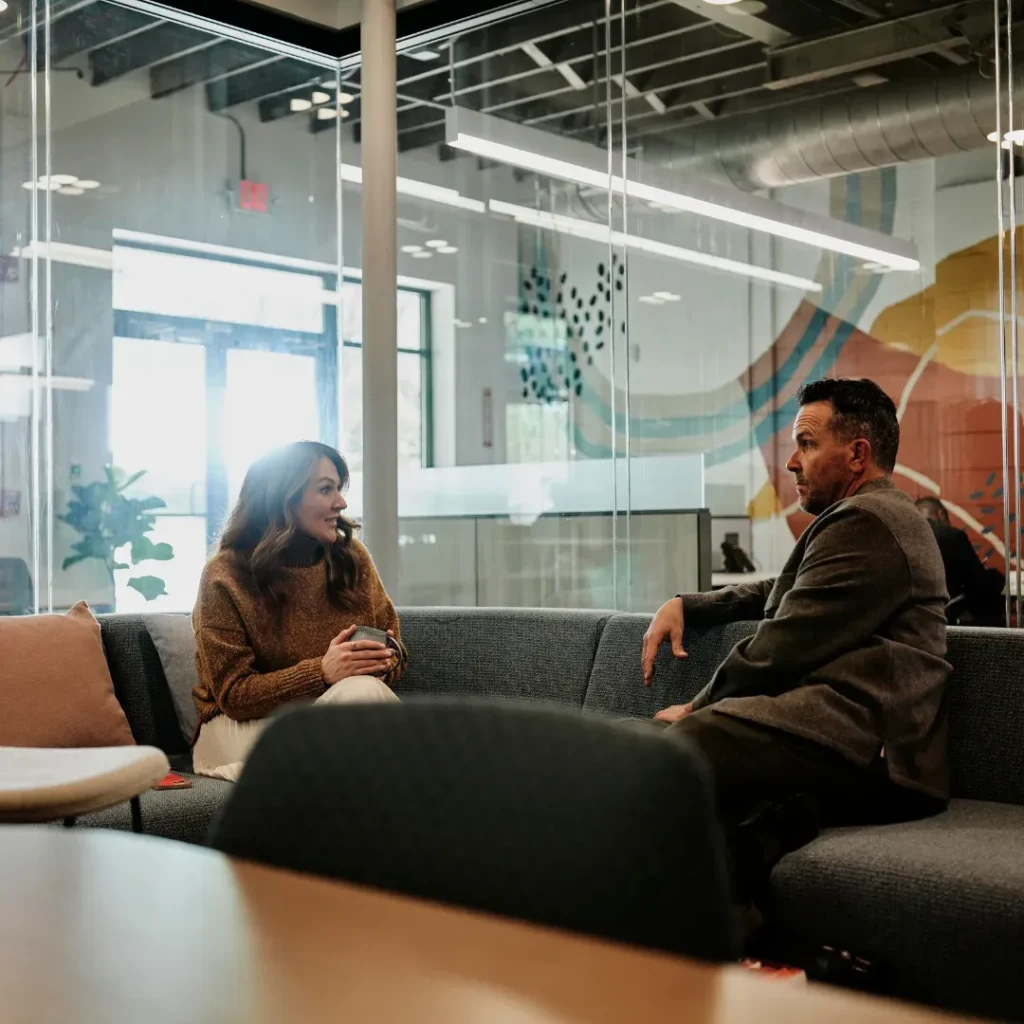What can’t artificial intelligence do?
This question—once asked in awe of the grand potential of AI—now prompts a nuanced exploration of the gap between algorithmic and human capabilities. While AI remains a growingly powerful tool for modern recruiting, the human touch continues to prove indispensable to hiring success.
Our latest study, “Work Futures: Trends Impacting 2024,” recently uncovered a critical piece of insight: 72% of workers agree that employers are relying too much on technology and AI in the hiring process. What’s more, only 48% of workers agree tech-enabled job searches will help them find the right job quicker.
Evidently, workers do not have faith in AI recruiting. So, what crucial elements of the human touch has artificial intelligence struggled to replicate? And how can AI and human recruiters best collaborate as we move into the future? Keep reading to explore these considerations.
Where Has AI Recruiting Gone Wrong?
AI technology has indisputably led to improvements in the recruiting field—streamlining candidate sourcing, automating administrative burdens, and providing insights at all stages of the hiring process. However, AI recruiting certainly hasn’t been hailed as a universal success. In fact, the accuracy of artificial intelligence tools has been regularly called into question in recent years.
There are countless examples of AI inheriting the biases present within training data. When Amazon built a hiring tool to vet applicants, the prevalence of resumes from men—due to their dominance in the tech industry — conditioned the AI model to prefer male over female candidates. ChatGPT shows signs of racial and gender bias when reviewing resumes. And HireVue, which has since eliminated its facial analysis feature, has been accused of rejecting a candidate for her body language, despite excellent performance in its skills evaluation.
It’s no wonder why our Work Futures report found only 24% of workers believe AI should be used in the resume and application review process. Biases in AI systems negatively impact disadvantaged communities, often mirroring stereotypes found in society today without the potential for reflection. Without human intervention, companies may lose out on the best candidates—and great workers may not be placed in the right jobs.
Empathy as the Missing Piece
AI is, theoretically, designed to replicate human decision-making. So, what sets real people apart from this sophisticated technology? It all comes down to empathy.
Humans naturally carry unconscious biases. But whereas AI perpetuates and occasionally amplifies those biases, experienced recruiters and AI leaders can learn or understand how to review, identify, and address signs of discrimination. Human decision-making is incredibly complex—and empathy empowers us to look at factors not considered in data sets or resumes.
Take this for example: AI recruiting tools may initially reject candidates with non-traditional backgrounds—like military service, for instance. But with a human in the loop, recruiters and HR managers may recognize the transferrable skills provided by certain experiences and re-train AI to take that into account.
Empathy also means a deeper consideration of cultural fit. Humans can quickly identify natural connections—aligned values that shine behind more complex interview responses and personalities that simply click with certain teams. People-based recruitment processes have worked for ages because of the relationships recruiters can build with candidates to uncover key details.
Integrating the Human Touch in AI Recruiting Processes
AI recruiting certainly doesn’t need to be eliminated. It has the potential to massively reduce time to hire and onboard qualified candidates in jobs faster. In fact, AI algorithms are often designed to increase the objectivity of resume screenings and candidate evaluations by focusing on pure data. However, human oversight plays an essential role in optimizing the AI recruiting process.
On one hand, humans can continuously refine the data fed to AI tools and correct potentially biased decisions. When companies embrace ethical AI—providing transparency around how algorithms work—recruiters can identify and step in where human judgment is most critical to prevent biases. AI must simply be used to strengthen recruiter capabilities and free up time.
The human touch—particularly face-to-face interactions—also uniquely enhances trust and makes applicants feel valued. This makes human intervention key to candidate retention and, ultimately, winning top talent. The integration of AI, which has yet to develop emotional intelligence, can certainly automate back-office functions—but it cannot replace the value of human touchpoints throughout the hiring process. AI should be seen as a tool for streamlining hiring processes, not commandeering them.
The right AI solutions provider can help companies integrate artificial intelligence into your hiring process with intention, while ensuring candidates still receive the exceptional recruiter interactions they seek. Experienced AI leaders recognize that quickly sourcing and selecting optimal candidates begins with the ethical implementation of hiring algorithms—not a total overhaul of human-driven processes.

